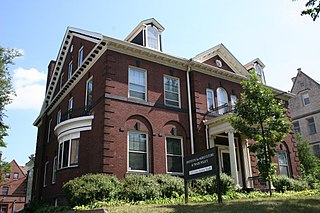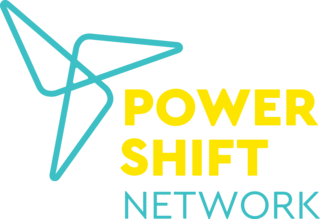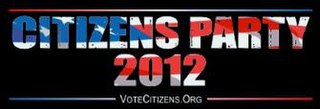
The 1999 Seattle WTO protests, sometimes referred to as the Battle of Seattle, were a series of protests surrounding the WTO Ministerial Conference of 1999, when members of the World Trade Organization (WTO) convened at the Washington State Convention and Trade Center in Seattle, Washington on November 30, 1999. The Conference was to be the launch of a new millennial round of trade negotiations.

Trade justice is a campaign by non-governmental organisations, plus efforts by other actors, to change the rules and practices of world trade in order to promote fairness. These organizations include consumer groups, trade unions, faith groups, aid agencies and environmental groups.
Global governance refers to institutions that coordinate the behavior of transnational actors, facilitate cooperation, resolve disputes, and alleviate collective action problems. Global governance broadly entails making, monitoring, and enforcing rules. Within global governance, a variety of types of actors – not just states – exercise power. Governance is thus broader than government.
Global Exchange was founded in 1988 and is an advocacy group, human rights organization, and a 501(c)(3) organization, based in San Francisco, California, United States. The group defines its mission as, "to promote human rights and social, economic, and environmental justice around the world." Global Exchange deals with a wide range of issues, ranging from the U.S. war in Iraq to worker abuse and fair trade issues.
The Monterrey Consensus was the outcome of the 2002 Monterrey Conference, the United Nations International Conference on Financing for Development. in Monterrey, Mexico. It was adopted by Heads of State and Government on 22 March 2002. Over fifty Heads of State and two hundred Ministers of Finance, Foreign Affairs, Development and Trade participated in the event. Governments were joined by the Heads of the United Nations, the International Monetary Fund (IMF), the World Bank and the World Trade Organization (WTO), prominent business and civil society leaders and other stakeholders. New development aid commitments from the United States and the European Union and other countries were made at the conference. Countries also reached agreements on other issues, including debt relief, fighting corruption, and policy coherence.
Global Trade Watch (GTW) is a consumer advocacy organization that focuses on trade policy. Founded in 1995 by attorney Lori Wallach, GTW is a division of U.S.-based think tank Public Citizen. GTW advocates for a greater public role in international, federal, state and local policy-making, and for a different set of policies and institutions than those governing the current model of globalization. In 2022, Melinda St. Louis succeeded Wallach as director of GTW.

Since its creation in 1995, the World Trade Organization (WTO) has worked to maintain and develop international trade. As one of the largest international economic organizations, it has strong influence and control over trading rules and agreements, and thus has the ability to affect a country's economy immensely. The WTO policies aim to balance tariffs and other forms of economic protection with a trade liberalization policy, and to "ensure that trade flows as smoothly, predictably and freely as possible". Indeed, the WTO claims that its actions "cut living costs and raise standards, stimulate economic growth and development, help countries develop, [and] give the weak a stronger voice." Statistically speaking, global trade has consistently grown between one and six percent per annum over the past decade, and US$38.8 billion were allocated to Aid for Trade in 2016.

APCO Worldwide is an independent global public affairs and strategic communications consultancy. With 680 employees in 35 worldwide locations, it is also the fifth largest independently owned PR firm in the United States. Headquartered in Washington, D.C., APCO was founded in 1984 by Margery Kraus, who is now the firm's Executive Chairman.
The Tulane Environmental Law Clinic (TELC) is a legal clinic that Tulane Law School has operated since 1989 to offer law students the practical experience of representing real clients in actual legal proceedings under state and federal environmental laws.

The Institute for Agriculture and Trade Policy (IATP) is an international non-profit research and advocacy organization that promotes sustainable food, farm, and trade systems. IATP has offices in Minneapolis, Minnesota, Washington, D.C., Geneva, Switzerland and Berlin, Germany.
The Texas Fair Trade Coalition (TFTC) is a coalition of labor unions, environmental advocacy organizations, consumer groups, family farm advocacy organizations, faith organizations, professors and students that promotes democratic control over fiscal and social policies, social justice, workers' rights and livable wages, and sustainable development in Texas and worldwide through improvements to trade policy.

Power Shift Network is a North American non-profit organization made up of a network of youth-led social and environmental justice organizations working together to build the youth clean energy and climate movement. It runs campaigns in the United States and Canada to build grassroots power and advocate for tangible changes on climate change and social justice at local, state, national and international levels in North America. The organization changed its name from Energy Action Coalition in July 2016 in order to reflect its new leadership and it shift from a coalition to a network structure. The Power Shift Network's members, which include other non-profit organizations and student groups focused on environmental justice, social justice, and climate change, focus their organizing and campaigns on campuses, communities, corporate practices, and politics. The Power Shift Network is part of the Global Youth Climate Movement.

The World Reuse, Repair and Recycling Association (WR3A) is a business consortium dedicated to the reform of the trade of e-waste. The WR3A is inspired by fair trade organizations.
The Oakland Institute is a progressive think tank founded in 2004 by Anuradha Mittal. It is headquartered in Oakland, California.

Foreign trade of the United States comprises the international imports and exports of the United States. The country is among the top three global importers and exporters.
Sustainable coffee is a coffee that is grown and marketed for its sustainability. This includes coffee certified as organic, fair trade, and Rainforest Alliance. Coffee has a number of classifications used to determine the participation of growers in various combinations of social, environmental, and economic standards. Coffees fitting such categories and that are independently certified or verified by an accredited third party have been collectively termed "sustainable coffees". This term has entered the lexicon and this segment has quickly grown into a multibillion-dollar industry of its own with potentially significant implications for other commodities as demand and awareness expand.

Renminbi currency value is a debate affecting the Chinese currency unit, the renminbi. The renminbi is classified as a fixed exchange rate currency "with reference to a basket of currencies", which has drawn attention from nations which have freely floated currency and has become a source of trade friction with Western nations.

The Citizens Party of the United States is a political party in the United States. Founded by Michael Thompson in Wayne, Pennsylvania in 2004 as the New American Independent Party (NAIP), the first meeting took place in Valley Forge, Pennsylvania on the day of the general election in 2004. The New American Independent Party changed its name to the Citizens Party in January 2011. The transition to the name Citizens Party lasted several months.
Sustainable products are those products that provide environmental, social and economic benefits while protecting public health and environment over their whole life cycle, from the extraction of raw materials until the final disposal.










